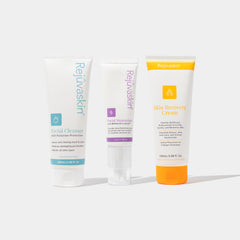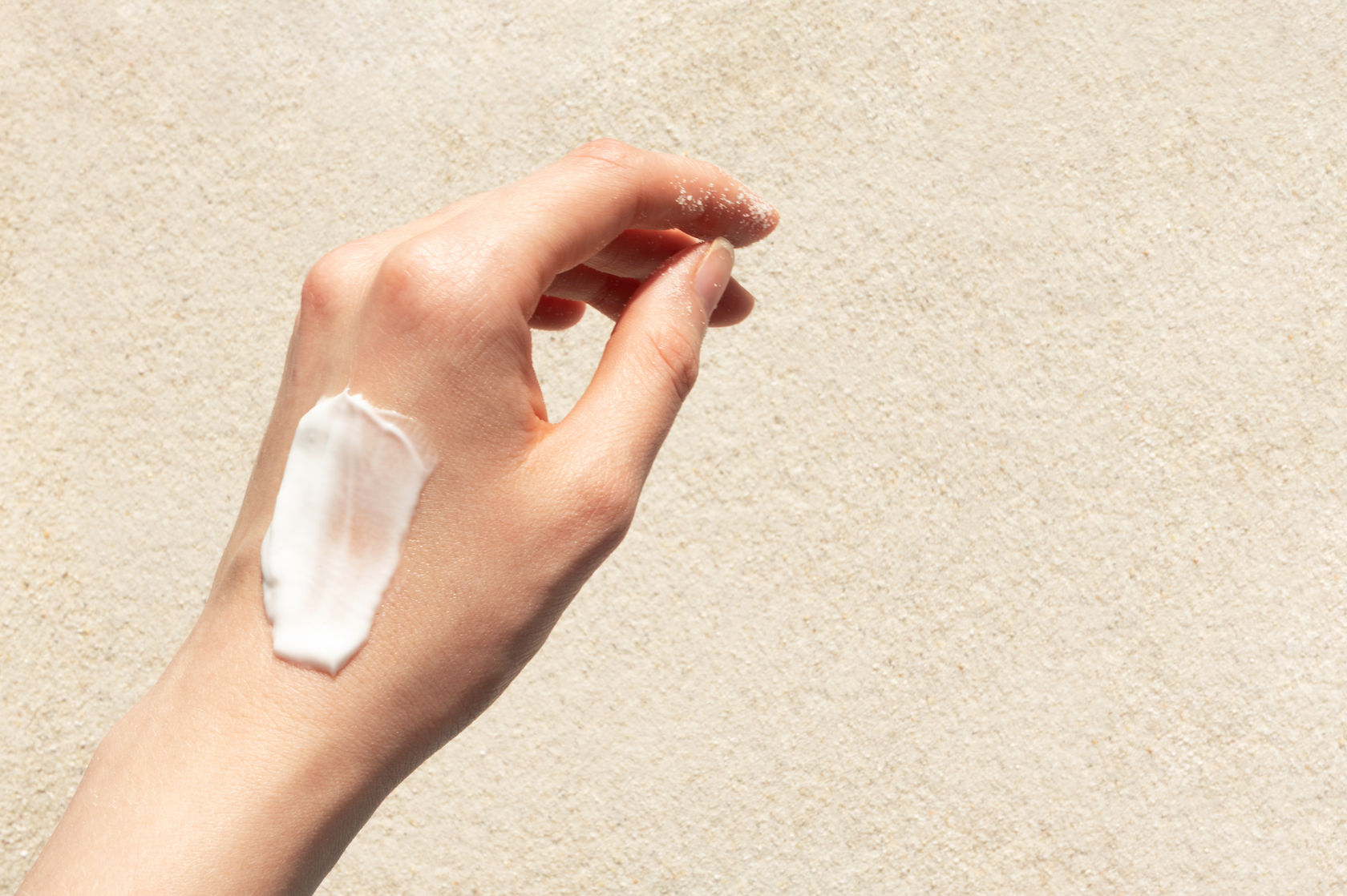When it comes to choosing the right sunscreen, understanding the differences between mineral and chemical sunscreens is essential for making an informed decision. In this blog, we'll explore these differences, explain why mineral sunscreens are often recommended by dermatologists, and introduce Rejuvaskin's Mineral Facial Sunscreen as an optimal choice for daily protection.
What is Mineral Sunscreen?
Mineral sunscreens, also known as physical sunscreens, use active ingredients like zinc oxide and titanium dioxide to physically block and reflect the sun's harmful UVA and UVB rays. Unlike chemical sunscreens, which absorb UV rays and convert them into heat, mineral sunscreens start working immediately upon application, providing broad-spectrum protection without the need for the product to be absorbed into the skin.
Benefits of Mineral Sunscreen:
- Immediate Protection: Mineral sunscreens begin protecting your skin as soon as they are applied, making them a convenient choice for on-the-go protection.
- Sensitive Skin Friendly: Since mineral sunscreens sit on top of the skin rather than being absorbed, they are less likely to cause irritation, making them ideal for those with sensitive skin or allergies.
- Environmental Safety: Rejuvaskin's Mineral Facial Sunscreen, with its non-nano zinc oxide formula, is a safer choice for both your skin and the environment, avoiding the potential harm that chemical sunscreens may cause to marine life.
What is Chemical Sunscreen?
Chemical sunscreens, on the other hand, contain active ingredients such as avobenzone, oxybenzone, and octinoxate. These ingredients absorb UV rays and release them as heat, preventing the rays from penetrating deeper layers of the skin. While effective, chemical sunscreens require application 15-30 minutes before sun exposure and may cause skin irritation in some individuals.
Drawbacks of Chemical Sunscreens:
- Potential Irritation: Chemical sunscreens can be irritating to sensitive skin, especially for those prone to allergic reactions.
- Environmental Concerns: Certain ingredients in chemical sunscreens have been linked to environmental damage, particularly to coral reefs, leading to bans in places like Hawaii.
Why Choose Mineral Sunscreen?
Given the choice between mineral and chemical sunscreens, many skincare enthusiasts and dermatologists prefer mineral options for their immediate, broad-spectrum protection, gentleness on the skin, and environmental benefits. Rejuvaskin's Mineral Facial Sunscreen offers all these advantages with the added benefits of niacinamide, which helps to calm and soothe the skin while addressing concerns like acne and aging.
Key Features of Rejuvaskin's Mineral Facial Sunscreen:
- 100% Mineral-Based Formula: Provides superior protection against UVA and UVB rays without the use of chemical filters.
- Niacinamide-Enhanced: This ingredient supports healthy skin by preventing UV damage and addressing issues like acne, dryness, and irritation.
- Lightweight and Non-Greasy: Perfect for daily use, this sunscreen is designed to be worn under makeup or on its own, leaving your skin protected and smooth.
Frequently Asked Questions
1. Is Mineral Sunscreen Better for Sensitive Skin?
Yes, mineral sunscreens are often recommended for sensitive skin because they do not absorb into the skin and are less likely to cause irritation or allergic reactions.
2. Do I Need to Reapply Mineral Sunscreen?
Yes, like all sunscreens, mineral sunscreen should be reapplied every two hours, or immediately after swimming or sweating, to maintain effective protection.
3. Can I Use Mineral Sunscreen Under Makeup?
Absolutely. Rejuvaskin's Mineral Facial Sunscreen is lightweight and designed to work well under makeup, providing a smooth base and protection throughout the day.
Conclusion
Choosing the right sunscreen is crucial for maintaining healthy skin and protecting against the harmful effects of the sun. Mineral sunscreens, like Rejuvaskin's Mineral Facial Sunscreen, offer a safe, effective, and environmentally friendly option that provides immediate protection and is gentle on all skin types. Make the switch to mineral sunscreen today and give your skin the protection it deserves.
Works Cited
- Cleveland Clinic. (2024). Mineral vs. Chemical Sunscreen: Which Is Better? Retrieved from Cleveland Clinic
- Verywell Health. (2024). Mineral vs. Chemical Sunscreen: Deciding Which to Use. Retrieved from Verywell Health
- Baylor College of Medicine. (2024). Mineral vs. Chemical Sunscreens. Retrieved from Baylor College of Medicine





















Leave a comment